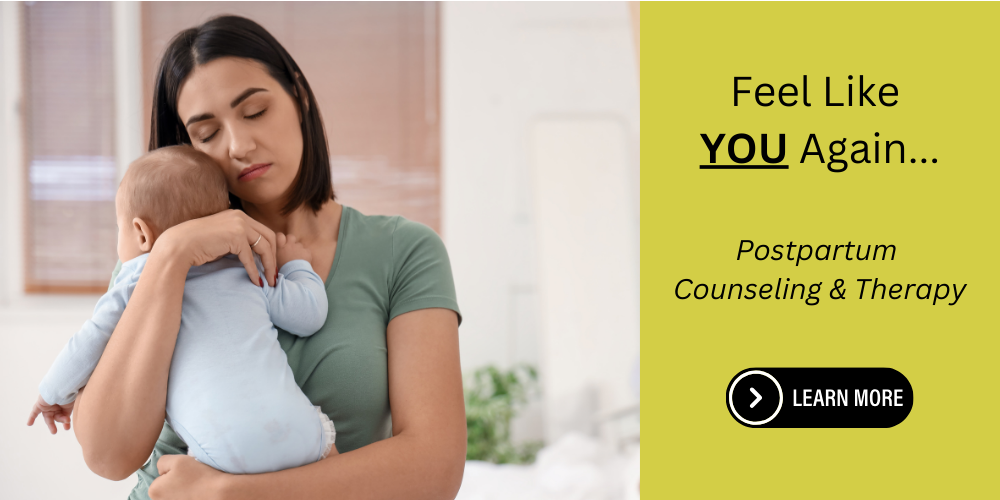
Home » 10 Natural Ways to Cope with Post Childbirth Depression
Post childbirth depression is a serious but treatable condition that affects many new mothers, making it difficult to enjoy the early months of motherhood. If you’re struggling with feelings of sadness, anxiety, or exhaustion, know that you are not alone. Seeking support, including postpartum therapy in Houston, Texas, can make a significant difference in your recovery. In addition to professional help, there are natural ways to support your mental health and find relief.
Table of Contents

10 Effective Natural Remedies for Post Childbirth Depression
1. Prioritize Sleep as Much as Possible
Lack of sleep can worsen depression symptoms. While it may feel impossible with a newborn, try to nap when your baby sleeps, take turns with a partner for nighttime feedings, or ask for help from family or friends. Even short rest periods can improve your mood and mental clarity.
➡️ Learn more about the importance of sleep on mental health from Sleep Foundation.
2. Nourish Your Body with Nutrient-Rich Foods
Your diet plays a crucial role in mental health. Incorporate foods rich in omega-3 fatty acids, vitamin D, and iron, such as salmon, leafy greens, and nuts. Staying hydrated and avoiding excessive caffeine or processed foods can also help stabilize your mood.
➡️ Learn more about the impact of diet on mental well-being from Harvard Health.
3. Get Fresh Air and Move Your Body
Gentle physical activity, like walking outside, practicing yoga, or stretching, can boost endorphins—your body’s natural mood enhancers. Spending time outdoors also increases vitamin D levels, which may help with post childbirth depression symptoms.
➡️ Read about the mental health benefits of exercise from American Psychological Association.
4. Lean on Your Support System
You don’t have to do this alone. Reach out to trusted friends, family, or a postpartum support group. Talking to others who understand your struggles can provide emotional relief and reassurance.
5. Practice Mindfulness and Deep Breathing
Mindfulness exercises, such as meditation, journaling, or deep breathing techniques, can help you stay present and reduce stress. Apps like Headspace or Calm offer guided sessions specifically designed for new moms.
6. Give Yourself Grace and Set Realistic Expectations
Motherhood is overwhelming, and trying to be “perfect” can add unnecessary pressure. Accept that some days will be harder than others, and remind yourself that you are doing your best. It’s okay to ask for help and take breaks when needed.
7. Limit Social Media and Avoid Comparison
Scrolling through social media can create unrealistic expectations of motherhood. Try to limit screen time and focus on your own journey instead of comparing yourself to others. Real-life support is more valuable than online validation.
8. Incorporate Relaxation Techniques into Your Day
Small moments of self-care can have a big impact. Try aromatherapy with calming essential oils (like lavender), take a warm bath, or listen to soothing music to help ease stress and anxiety.
9. Establish a Routine, Even if It’s Simple
Having a daily rhythm—even if it’s just waking up, eating meals, and setting aside quiet time—can create stability and help regulate emotions. Small, predictable routines can make overwhelming days feel more manageable.
10. Seek Professional Help When Needed
While natural coping strategies can help, additional support is sometimes necessary. Therapy for Moms offers specialized therapy services for mothers, including postpartum therapy in Houston, Texas. Our experienced therapists provide expert guidance and compassionate care for those experiencing post childbirth depression. A licensed therapist can help you process emotions, develop effective coping strategies, and regain confidence in your motherhood journey.
Conclusion
Coping with post childbirth depression can feel overwhelming, but there are many natural ways to support your mental health. Small changes, such as getting enough rest, eating well, and leaning on your support system, can make a big difference. If your symptoms persist or worsen, seeking professional help is an important step toward recovery. Remember, healing takes time, and you deserve the care and support needed to feel like yourself again.

